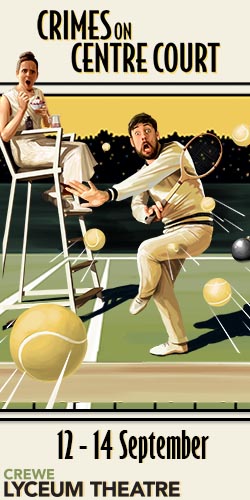
A stoppage time winner from midfielder Sean Cooke saw Nantwich Town progress to the second qualifying round of the FA Cup with a 2-1 win at City of Liverpool FC, writes Ryan Batty.
Cooke’s deflected effort in the fifth minute of added time in the second half saw the Dabbers overcome an impressive Liverpool side who had earlier pulled the game level through Luke Denson’s free kick.
Joel Stair’s header had given Dave Cooke’s men a half time lead in front of more than 1000 spectators at the TDP Solicitors Stadium.
The Dabbers’ boss made two changes from the team that drew with Barwell on Bank Holiday Monday.
Jamie Morgan and David Forbes started instead of Sam Hall who dropped to the bench and Kaiman Anderson who was unable to play due to the conditions of his loan from Southport.
Liverpool started the brighter as they looked to take an early lead but the North West Counties side were unable to create any clear chances and test Dabbers’ keeper Krystian Burzynski.
But Burzynski had to be alert ten minutes into the game as he stood firm to punch away a stinging effort from John McGrath who had found space inside the Dabbers’ box.
McGrath was causing problems down the Nantwich left as the hosts earned themselves two quick corners with the latter scrambled away by the Dabbers’ defence after the ball had bobbled around the six yard box.
Burzynski then made a comfortable save from Denson’s free kick after Stair had brought down McGrath 25-yards from goal, before Karl Noon was inches from giving the home side the lead as he volleyed a left wing cross narrowly past the post.
After Liverpool scrambled a Cooke corner away, Caspar Hughes then saw his shot from the edge of the box deflect narrowly wide of the post for a corner.
From Matt Bell’s resulting set piece, Stair rose highest to head into the net unmarked as the Dabbers took the lead against the run of play.
The lead was nearly doubled two minutes later as Forbes broke away but his intended pass to Hughes went behind the midfielder, before Jordan Davies then saw his curling shot blocked by a Liverpool defender.
The second period began as the first had, with Liverpool on the front foot as they looked for a leveller.
That equaliser came ten minutes into the half as Denson curled a free kick into the far corner after Morgan had fouled McGrath outside the box, with the Dabbers’ left back subsequently cautioned.
Five minutes later and the Dabbers were inches from retaking the lead as Stair saw his header crash off the underside of the crossbar with the linesman ruling the ball had not crossed the line.
Nantwich then made their first changes of the game as Ryan Brooke and Clayton McDonald were introduced in place of Davies and Forbes.
Bell then saw his controlled volley cleared off the line by Liverpool before Dave Cooke made his final change of the night with Hall replacing Morgan.
With the game entering the final ten minutes, Burzynski pulled off a fine save from Denson’s deflected shot, with the Pole tipping the effort over the bar.
As the referee indicated five minutes of stoppage time, John Connolly saw his shot go across the face of goal after the Liverpool forward had beaten Burzynski to the ball.
But with the game all set for a replay, the Dabbers broke away in the Liverpool half through Brooke.
His pass found Cooke on the edge of the box and the midfielder fired a low shot through a crowd of bodies with the ball finding the corner of the net.
It turned out to be the last kick of the game as the Dabbers progressed to the second qualifying round, which will be drawn on Monday.
Nantwich Town: Burzynski, Bourne, Morgan (Hall 79′), Stair, Mullarkey, Bell, Hughes, Forbes (Brooke65′), Clayton, Cooke, Davies (McDonald 65′). Unused subs: Moss (GK), Baxendale, Webster, Cotterell.





















Recent Comments